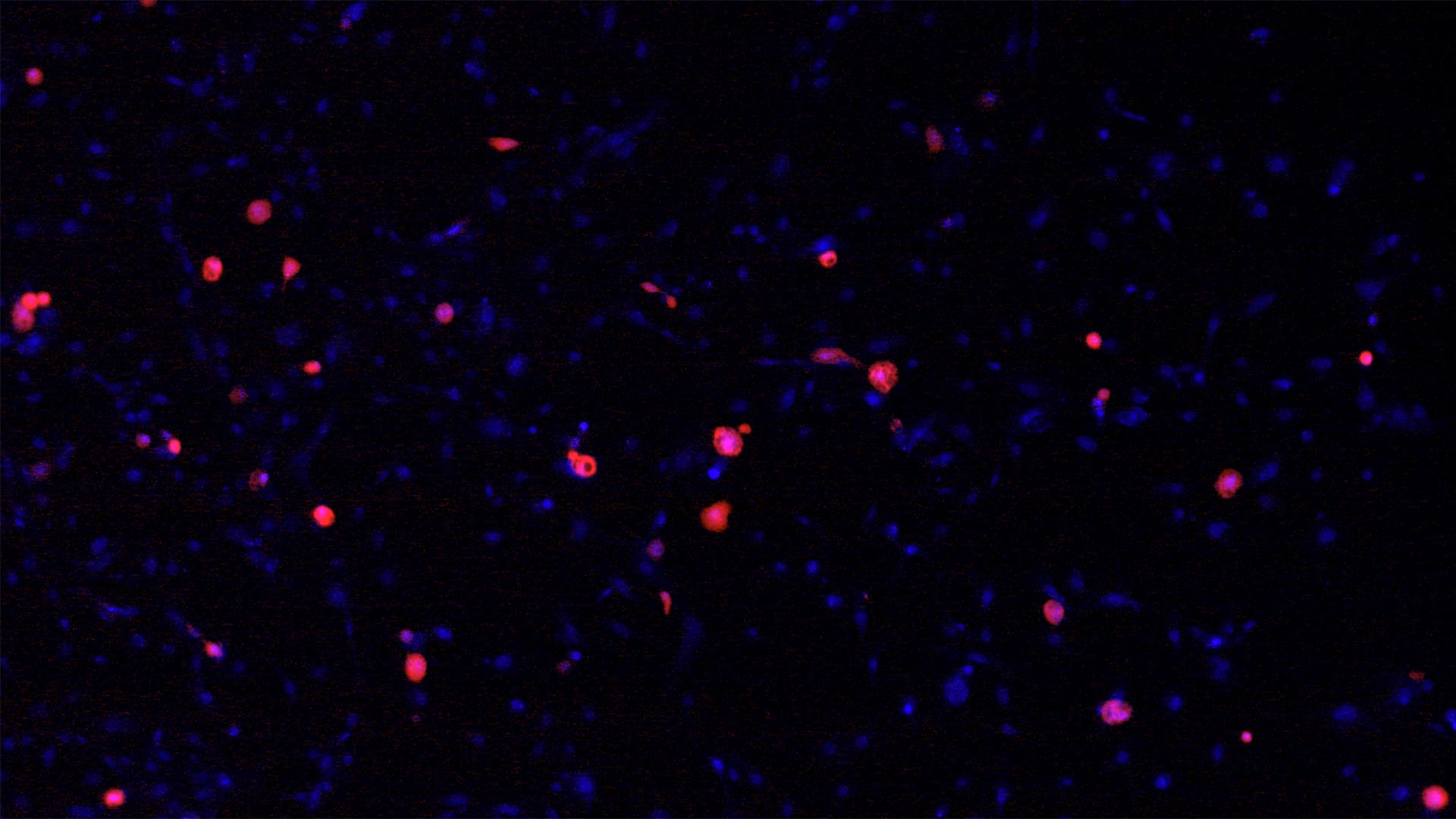Camostat mesylate is an antiviral drug in clinical trials for treating COVID-19. Cold Spring Harbor Laboratory Fellow Jason Sheltzer and University of Göttingen Professor Stefan Pöhlmann investigated how this drug prevents the virus from entering and spreading from cell to cell.
SARS-CoV-2 infects our lung cells with the help of a cell surface protein called the TMPRSS2 enzyme. In this study, the researchers found that the virus can use multiple members of the TMPRSS enzyme family to enter cells. Camostat binds to these enzymes, which stops SARS-CoV-2 infection and its spread between cells. Sheltzer says:
“Having a single cell infected isn’t that bad. The problem is when SARS-CoV-2 starts to replicate and starts to spread and infect hundreds of thousands of cells in your lungs, and this drug has the potential to prevent the spread of infections from one cell to another. So treatment with Camostat may leave SARS-CoV-2 viral particles stranded outside of cells, where they’ll just fall apart.”
The researchers also found that Camostat is effective even after being broken down by the body into metabolic byproducts. Sheltzer says:
“So if you have a drug that works perfectly in a test tube, but it gets destroyed the second it gets exposed to your stomach or your liver, then that’s not a good drug, and that’s kind of been a concern with Camostat. But in this paper, we show that its metabolite is still active as an antiviral.”
The coronavirus isn’t limited to lung cells; it can spread to other parts of the body. So Sheltzer and Pöhlmann looked for members of the TMPRSS family in other types of cells. Sheltzer says:
“We found that these TMPRSS enzymes were expressed in a number of different tissues. Some of them were expressed at high levels in the stomach or in the intestine, some of them were expressed at high levels in the salivary gland, and so potentially these enzymes could contribute to the spread of SARS-CoV-2 infections in a person.”
The researchers hope that Camostat could help prevent infection via TMPRSS enzymes throughout the body. The drug is currently in clinical trials as a treatment for COVID-19 in the U.S., Denmark, and Israel.
Written by: Luis Sandoval, Communications Specialist | sandova@cshl.edu | 516-367-6826
Funding
National Institutes of Health, Damon Runyon-Rachleff Innovation award, American Cancer Society Research Scholar Grant, New York Community Trust, Deutsche Forschungsgemeinschaft, the European Commission, the Berlin Mathematics Research Center, the Federal Ministry of Education and Research, the Berlin Institute for the Foundations of Learning and Data, the Country of Lower Saxony, the Lundbeck Foundation, the Novo Nordisk Foundation, the Fraunhofer Internal Programs
Citation
Hoffmann, M., et al., “Camostat mesylate inhibits SARS-CoV-2 activation by TMPRSS2-related proteases and its metabolite GBPA exerts antiviral activity”, EBioMedicine, March 3, 2021. DOI: 10.1016/j.ebiom.2021.103255

